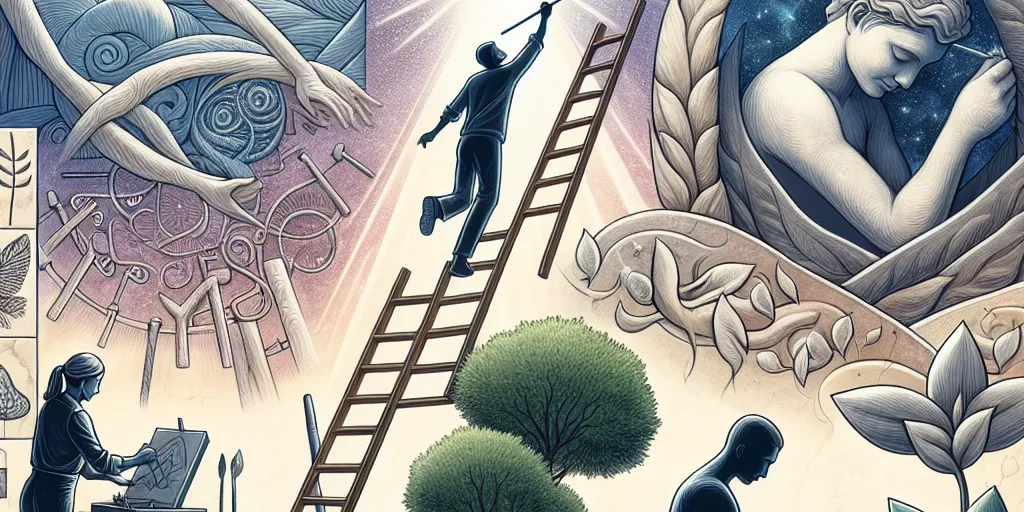· Sophia Thompson · lifelong learning · 19 min read
Unlocking Potential: Why Lifelong Learning Matters
Embrace the Journey of Continuous Growth
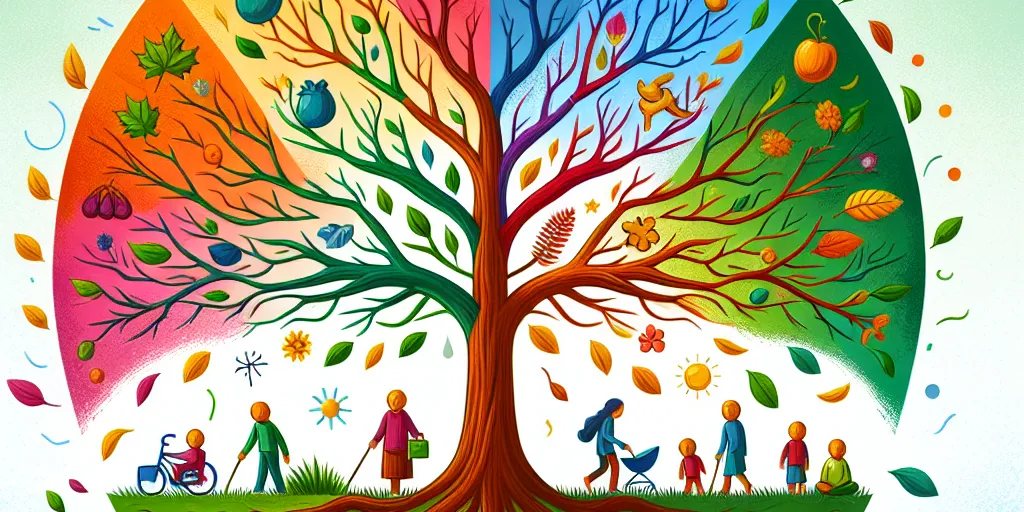
In an ever-changing world, the ability to adapt and grow continuously has never been more crucial. This is where the concept why lifelong learning matters comes into play, offering not just a strategy for career advancement, but a blueprint for a fulfilling life. It challenges us to remain curious, open-minded, and committed to personal development throughout our lives.
Dive into the key aspects of lifelong learning with our guide. Each section explores a unique benefit or angle, providing you with a comprehensive understanding and actionable tips.
- The Essence of Lifelong Learning
- The Impact of Lifelong Learning on Career Success
- Embracing Change through Continuous Education
- Lifelong Learning and Mental Agility
- The Joy of Learning: Cultivating Curiosity
- Networking and Lifelong Learning: Building Valuable Connections
- Personal Empowerment through Knowledge
- Staying Relevant in a Fast-Paced World
- Challenges and Overcoming Barriers to Lifelong Learning
- Lifelong Learning Resources and How to Access Them
- Setting Personal Learning Goals
- Creating a Personal Lifelong Learning Plan
The Essence of Lifelong Learning
At the core of lifelong learning is the acknowledgment that our journey of discovery is never over. It’s the understanding that each day brings new challenges, opportunities, and possibilities for growth. This fundamental concept isn’t just about accumulating knowledge in the traditional academic sense. It’s about cultivating a mindset that sees the value in every experience and seeks to learn from it.
The essence of lifelong learning lies in its power to transform. It’s not merely an enhancement of our professional capabilities but a profound deepening of our personal wisdom and understanding of the world. In embracing lifelong learning, we acknowledge that we are works in progress, continuously evolving and adapting to the ever-changing landscapes of our lives and the world around us.
Lifelong learning encourages us to become active participants in our own development. It asks us to step out of our comfort zones, to question, and to be curious. This curiosity leads us to explore new territories, not just externally in the vast world but internally within the depths of our own capabilities and potential. Lifelong learning is about building resilience, nurturing our innate capabilities, and developing a rich tapestry of experiences that contribute to our personal narrative.
In a way, the essence of lifelong learning is a celebration of the human spirit’s indefatigable quest for knowledge, meaning, and growth. It embodies the understanding that every moment is an opportunity to learn something new, to become a better version of ourselves, and to contribute more significantly to our communities and the world at large.
The Impact of Lifelong Learning on Career Success
The pursuit of lifelong learning has a profound impact on career success. In today’s rapidly changing job market, the ability to adapt and learn new skills is not just an advantage; it’s a necessity. The process of continually acquiring knowledge and refining abilities means that we can stay ahead of technological advancements and shifts in industry trends. It’s this agility that makes a lifelong learner invaluable in any professional setting.
Personally, embracing lifelong learning has drastically shaped my career path. Early on, I noticed a shift in my industry towards digital marketing—a field I was barely familiar with. Recognizing the need to adapt, I immersed myself in online courses, attended workshops, and sought mentorship in this area. This proactive approach not only secured my position but eventually led to promotions and opportunities to lead projects. The lesson here was clear: the willingness to continuously learn and evolve is a key driver of career progress and satisfaction.
Moreover, lifelong learning fosters creative problem-solving and innovation. By consistently exposing ourselves to new ideas and perspectives, we’re more equipped to think outside the box and bring fresh solutions to the table. Employers highly value this ability, as it directly contributes to the company’s growth and adaptability.
In essence, the impact of lifelong learning on career success cannot be overstated. It is the fuel that propels us forward, enabling not just survival but the ability to thrive and innovate in our chosen fields. It’s a testament to the idea that our careers are not defined by what we already know, but by our capacity to grow.
Embracing Change through Continuous Education
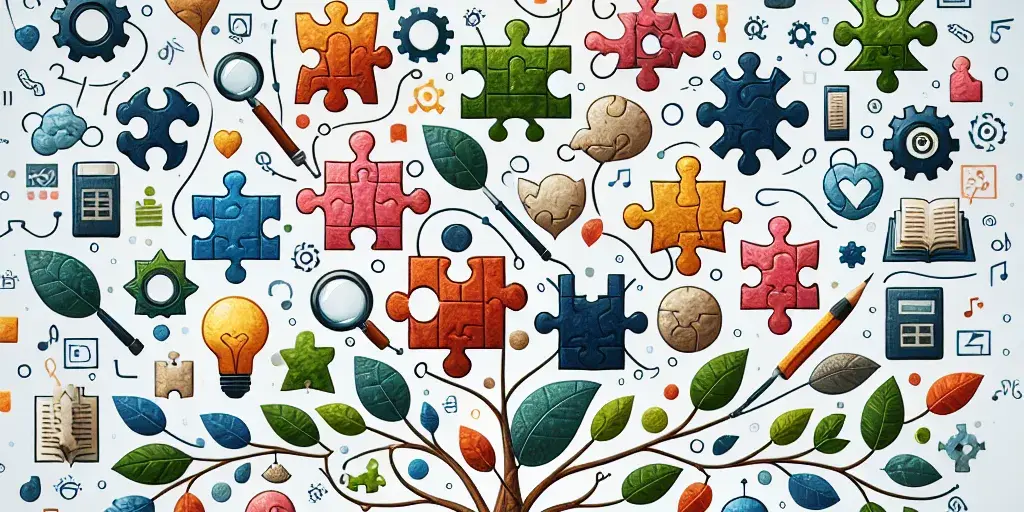 In a world where change is the only constant, embracing change through continuous education is not just beneficial; it’s essential for personal and professional growth. The landscape of nearly every industry is continually evolving, driven by innovation, technological advancements, and shifts in consumer behavior. Those who engage in lifelong learning are best positioned to navigate these changes successfully.
In a world where change is the only constant, embracing change through continuous education is not just beneficial; it’s essential for personal and professional growth. The landscape of nearly every industry is continually evolving, driven by innovation, technological advancements, and shifts in consumer behavior. Those who engage in lifelong learning are best positioned to navigate these changes successfully.
Continuous education allows us to stay relevant and competitive. It’s about keeping our skills and knowledge up to date but also about developing a mindset that anticipates and adapts to change with agility. This proactive approach to learning cultivates resilience, enabling individuals to face new challenges with confidence and creativity.
Moreover, embracing change through continuous education opens up a world of opportunities. It broadens our perspectives, exposing us to new ideas and ways of thinking that can spark innovation. It helps in building a strong professional network that spans industries and disciplines, fostering collaboration and opening doors to unexpected career paths.
Personal Example: Earlier in my career, I faced a significant industry shift that rendered my existing skill set less relevant. Recognizing the need to adapt, I dove into learning new technologies and methodologies. This journey was challenging but full of opportunities for growth. Not only did it help secure my role in a shifting landscape, but it also ignited a passion for continuous learning that has since shaped my career trajectory. This experience highlighted the importance of being flexible and open to new learning opportunities as a means to drive forward in times of change.
In conclusion, embracing change through continuous education is a powerful strategy for personal empowerment. It equips us with the knowledge, skills, and mindset needed to thrive in an ever-changing world. By committing to lifelong learning, we enable ourselves to meet the future with confidence and curiosity, ready to seize the opportunities that change invariably brings.
Lifelong Learning and Mental Agility
The connection between lifelong learning and mental agility cannot be overstated. Engaging continuously in the process of acquiring new knowledge and skills keeps our minds sharp and flexible. This notion of mental agility is crucial in navigating the complexities and uncertainties of both our personal and professional lives. It empowers us to adapt to changes, solve problems creatively, and make informed decisions quickly.
Mental agility, cultivated through lifelong learning, is akin to physical fitness for the brain. Just as regular exercise strengthens the body, regularly challenging our cognitive abilities through learning can enhance memory, improve concentration, and even stave off the mental decline associated with aging. This is not just about learning in a formal educational setting but embracing a mindset of curiosity and openness to new experiences.
Live as if you were to die tomorrow. Learn as if you were to live forever.
— Mahatma Gandhi
This quote captures the essence of lifelong learning and mental agility. Adopting a learning-for-life approach ensures that our mental faculties remain vibrant and robust, prepared to tackle the challenges of tomorrow.
In today’s fast-paced world, staying mentally agile is more important than ever. It can transform how we work, enhance how we interact with others, and enrich our personal life journeys. Thus, committing to lifelong learning is a commitment to maintaining and enhancing our mental agility, ensuring that we remain not just relevant but ahead of the curve in an ever-changing world.
💡 Resilience is the art of bouncing back with a smile. When facing adversity, resilient individuals release endorphins, creating a positive emotional rebound. It’s like having a mental trampoline that transforms setbacks into opportunities for a joyful leap forward, making resilience a delightful secret sauce for navigating life’s twists and turns!
The Joy of Learning: Cultivating Curiosity
At the heart of lifelong learning lies the joy of learning—an intrinsic pleasure derived from discovering new things, regardless of practical application. This joy is closely tied to cultivating curiosity, a powerful force that drives us to explore, ask questions, and seek answers. Curiosity leads us down paths we might not have traveled, opening our minds to different perspectives and experiences.
Cultivating curiosity is about fostering an environment, both internally and externally, where asking ‘why’ and ‘how’ becomes a reflex. It’s about challenging ourselves to step beyond our comfort zones and engage with the unknown. This openness to experience not only enriches our lives with knowledge and understanding but also nurtures a sense of wonder and excitement about the world.
Personal growth and development flourish in the soil of curiosity. As we learn to embrace the unknown and delve into the mysteries that surround us, we build resilience and adaptability—traits that are invaluable in every sphere of life. Moreover, the joy of learning, fueled by curiosity, can become a self-sustaining source of motivation. It pushes us to continue exploring, even when the journey becomes challenging.
In essence, the joy of learning and the act of cultivating curiosity remind us that education is not a destination but a journey. It’s a journey filled with surprises, challenges, and achievements. By embracing this mindset, we unlock an endless source of inspiration and joy that not only propels our personal and professional growth but also enriches our lives in immeasurable ways.
Networking and Lifelong Learning: Building Valuable Connections
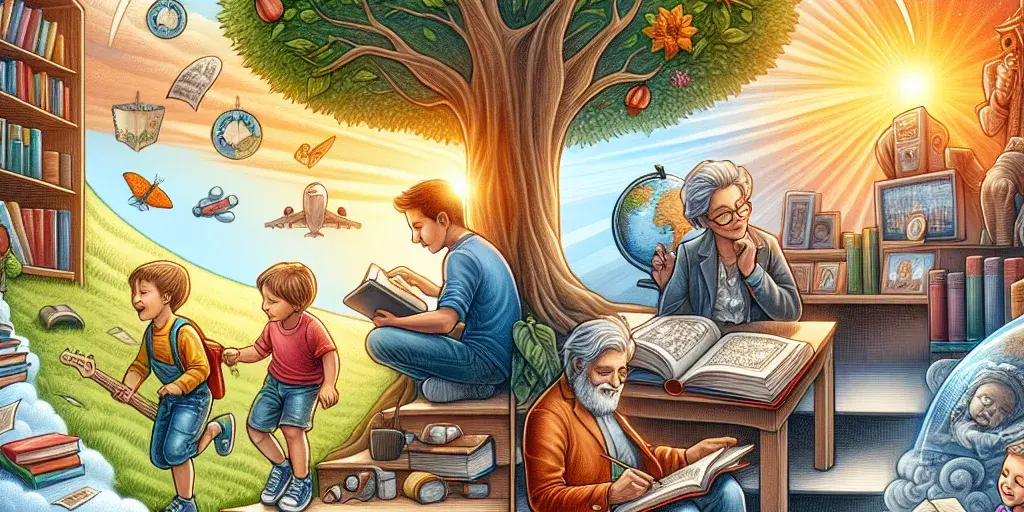 In the realm of lifelong learning, networking emerges as a crucial element, weaving a fabric of relationships that underpin both personal and professional growth. Networking and lifelong learning go hand in hand; together, they build a scaffold for success that extends far beyond individual effort. Through networking, we gain access to a diverse pool of knowledge, experience, and opportunity. It enables us to share insights, learn from others’ achievements and pitfalls, and open doors to new possibilities.
In the realm of lifelong learning, networking emerges as a crucial element, weaving a fabric of relationships that underpin both personal and professional growth. Networking and lifelong learning go hand in hand; together, they build a scaffold for success that extends far beyond individual effort. Through networking, we gain access to a diverse pool of knowledge, experience, and opportunity. It enables us to share insights, learn from others’ achievements and pitfalls, and open doors to new possibilities.
The value of networking in the context of lifelong learning cannot be overstated. It’s about creating and nurturing relationships that provide mutual benefits. These connections can offer guidance, mentorship, and support as we navigate the complexities of our careers and personal development. Moreover, networking introduces us to varied perspectives and ideas, enriching our understanding and broadening our horizons.
One of the most profound lessons I’ve learned on this journey is that every conversation is an opportunity to learn. By approaching networking with a genuine curiosity and an eagerness to listen, we position ourselves as avid learners. This mindset not only fosters meaningful connections but also enhances our learning experience, making it richer and more diverse.
In essence, effective networking in the pursuit of lifelong learning is not just about expanding our list of contacts. It’s about building a community of learners, mentors, and supporters who collectively drive our growth. This community becomes a treasure trove of wisdom, inspiration, and opportunity, proving that sometimes, the most valuable knowledge is found not in books, but in the stories and experiences of those around us.
Personal Empowerment through Knowledge
The journey of lifelong learning doesn’t merely equip us with a series of skills or a collection of facts; it fundamentally transforms us, granting a profound sense of personal empowerment through knowledge. This empowerment manifests in numerous ways, altering our perception of the world and our place within it. With each new piece of knowledge acquired, we expand our understanding, increase our ability to make informed decisions, and enhance our capacity to navigate life’s challenges.
Empowerment through knowledge gives us the confidence to question, to challenge the status quo, and to voice our opinions and ideas. It emboldens us to take risks, to strive for our goals, and to persist in the face of adversity. The beauty of knowledge as a source of empowerment is that it’s intrinsically personal yet universally applicable. It not only enriches our individual lives but also enables us to contribute more meaningfully to society.
A turning point in my own life was the realization that the pursuit of knowledge—whether through formal education, self-study, or real-world experiences—was not just about career advancement. It was about crafting a life of purpose and passion. This understanding shifted my motivation from acquiring knowledge for external validation to learning for personal fulfillment and empowerment.
Ultimately, personal empowerment through knowledge is about unlocking our full potential. It’s about discovering our strengths and passions, overcoming our limitations, and actively shaping our destiny. The pursuit of lifelong learning, therefore, is not just an academic endeavor but a profound journey of self-discovery and empowerment. Through this journey, we not only find answers but also learn to ask the right questions, driving our continual growth and transformation.
Staying Relevant in a Fast-Paced World
Staying relevant in a fast-paced world is a challenge that confronts us all, regardless of our field or stage in life. The rate at which technology evolves, industries transform, and societal norms shift is astonishing. To keep pace, we must embrace lifelong learning as our ally. This commitment to continuous personal and professional development is crucial not just for survival but for thriving in today’s environment.
The key to relevance is adaptability—a quality nurtured through constant learning. By staying informed about developments in our fields, acquiring new skills, and broadening our perspectives, we equip ourselves to navigate changes effectively. It’s about being proactive, anticipating trends, and positioning ourselves to take advantage of opportunities.
A personal anecdote that highlights this necessity involves my transition from traditional marketing to digital marketing. As the digital landscape began to dominate, I realized the importance of upskilling. Through online courses, networking, and practice, I not only safeguarded my career but also opened doors to new possibilities that I hadn’t previously considered.
In essence, staying relevant in a fast-paced world requires an ongoing commitment to learning and growth. It’s about being curious, open-minded, and willing to step outside our comfort zones. Lifelong learning is not merely an educational concept but a life strategy, enabling us to face the future with confidence and agility. This approach ensures that we not only keep up with the pace of change but also play an active role in shaping our paths forward.
💡 Meditation is like a mental massage for your brain. Studies show that regular meditation not only reduces stress but also physically alters the brain, increasing gray matter in areas associated with self-awareness and compassion. It’s like hitting the refresh button for your mind, creating a calm oasis in the midst of life’s hustle!
Challenges and Overcoming Barriers to Lifelong Learning
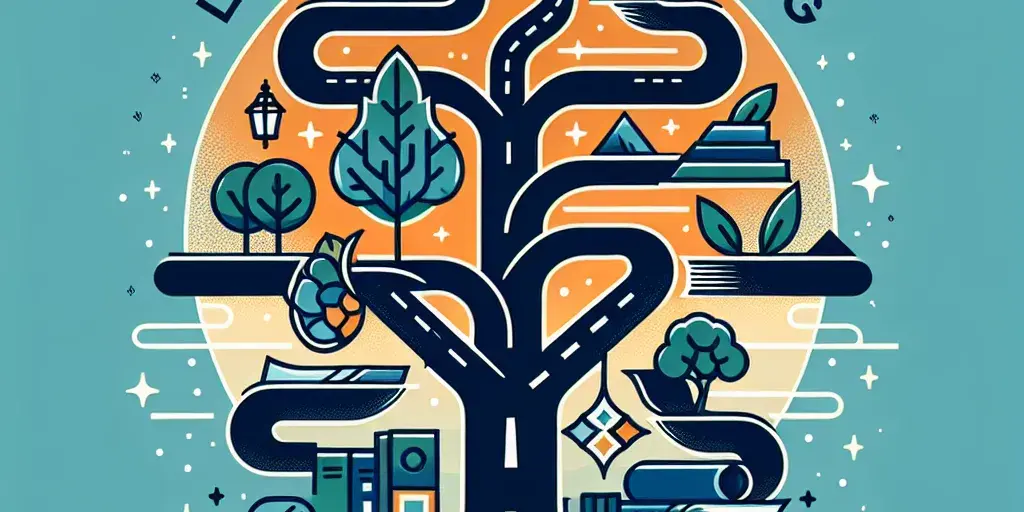 Embarking on the journey of lifelong learning is undeniably rewarding, yet it’s not without its hurdles. The challenges and overcoming barriers to lifelong learning are crucial aspects that merit attention. Time constraints, financial limitations, lack of motivation, and perceived irrelevance of further education are among the common obstacles learners face. Each of these barriers can significantly impede our pursuit of continuous growth and development if not addressed properly.
Embarking on the journey of lifelong learning is undeniably rewarding, yet it’s not without its hurdles. The challenges and overcoming barriers to lifelong learning are crucial aspects that merit attention. Time constraints, financial limitations, lack of motivation, and perceived irrelevance of further education are among the common obstacles learners face. Each of these barriers can significantly impede our pursuit of continuous growth and development if not addressed properly.
Time constraints often emerge as a predominant challenge, especially for those balancing professional commitments and personal responsibilities. Prioritizing learning within a busy schedule requires intention and strategy. Setting clear goals, breaking them down into manageable tasks, and leveraging technology for flexible learning opportunities are effective ways to navigate time constraints.
Financial limitations also pose a significant barrier for many. However, the proliferation of free and low-cost online resources has made knowledge more accessible than ever. Scholarships, community education programs, and employer support for professional development are other avenues to explore to alleviate financial constraints.
Lack of motivation can stem from various sources including past educational experiences or uncertainty about the outcomes of learning. To counteract this, it’s important to focus on personal interests and career goals. Establishing a clear connection between learning activities and these goals can reignite motivation.
Finally, the perceived irrelevance of continuing education is an obstacle that fades when one recognizes the value of adaptability and resilience in today’s ever-changing world. Engaging in lifelong learning not only fosters these qualities but also enhances our ability to contribute meaningfully to our communities and workplaces.
Overcoming barriers to lifelong learning is about adopting a proactive mindset, leveraging available resources, and persistently pursuing our goals. With determination and creativity, we can turn these challenges into stepping stones towards a richer, more fulfilling life.
Lifelong Learning Resources and How to Access Them
In the quest for knowledge and growth, knowing where to look for lifelong learning resources and how to access them is half the battle. The good news is that in this digital age, educational resources are more abundant and accessible than ever before. From online courses to digital libraries, podcasts to webinars, the opportunities for learning are endless.
Online Courses: Platforms like Coursera, Udemy, and Khan Academy offer courses on a wide range of subjects. Many of these courses are free or offered at a relatively low cost, making high-quality education accessible to anyone with an internet connection.
Digital Libraries and eBooks: Public and university libraries often provide digital services, allowing members to access eBooks, journals, and research papers. Websites like Project Gutenberg offer free access to thousands of classic texts.
Podcasts and Webinars: For those who prefer audio learning or have limited time, podcasts and webinars are excellent resources. They cover myriad topics, from science and technology to history and philosophy, and can be a great way to learn during a commute or workout.
Learning Communities: Joining online forums or local groups can provide support and motivation. Platforms like Meetup facilitate the creation of learning groups where members can share resources, experiences, and knowledge.
Accessibility to these resources often requires nothing more than an internet connection and a sense of curiosity. However, the wealth of information available can be overwhelming. It’s important to have clear learning objectives and seek out resources that align with your goals and interests.
In essence, lifelong learning resources are all around us, waiting to be tapped into. Whether you’re looking to advance in your career, pick up a new hobby, or simply expand your horizons, the tools you need are at your fingertips. The key is to start exploring.
💡 Affirmations are the magic spells of self-belief, weaving positivity into the fabric of thoughts. With each uttered phrase, they plant seeds of empowerment in the fertile soil of the mind. Like a symphony of encouragement, affirmations harmonize with the universe, fostering a mindset that blossoms with confidence, resilience, and boundless potential.
Setting Personal Learning Goals
Setting personal learning goals is a foundational step in the journey of lifelong learning. Without clear goals, it’s easy to become overwhelmed by the vast sea of knowledge available or to wander aimlessly without making significant progress. Effective goal setting provides direction, motivation, and a way to measure your success.
The first step in setting personal learning goals is to reflect on your interests and career aspirations. Ask yourself what skills you need to develop or what knowledge you desire to gain to advance in your chosen field or personal life. This reflection will help tailor your learning goals to align with your long-term vision.
Once you have identified your areas of interest, make your goals SMART: Specific, Measurable, Achievable, Relevant, and Time-bound. A well-defined goal might be, ‘Learn basic Spanish to hold a conversation within six months,’ as opposed to a vague ‘Learn a new language.’ The specificity of the former makes it easier to plan and track progress.
Breaking down your goals into smaller, manageable tasks can further enhance your learning experience. This approach not only makes the goal seem more achievable but also provides regular milestones to celebrate, keeping motivation high.
Self-assessment is another critical component. Regularly evaluating your progress toward your goals allows you to adjust your learning plans as needed, ensuring that you remain on track and engaged.
In essence, setting personal learning goals is about creating a roadmap for your educational journey. It’s a proactive way to ensure that your learning endeavors are intentional, focused, and aligned with your personal and professional aspirations. With clear goals, the path to lifelong learning becomes much more navigable and fulfilling.
Creating a Personal Lifelong Learning Plan
Embarking on a lifelong learning journey requires more than a desire to learn; it necessitates a structured approach through creating a personal lifelong learning plan. This plan serves as a roadmap, guiding you through the expansive landscape of knowledge towards achieving your personal and career aspirations.
The first step is to assess your current skills and knowledge, identifying both strengths and areas for improvement. This self-reflection is crucial for setting learning goals that are not only challenging but also aligned with your ambitions.
Next, define your learning objectives based on the areas identified. What do you want to achieve in the short term and the long term? These objectives should be specific, measurable, attainable, relevant, and time-bound (SMART) to increase your chances of success.
Identifying resources is also a critical component. Explore available learning materials and platforms that can help you achieve your goals. Consider online courses, books, podcasts, workshops, and professional networks as potential sources of knowledge.
Develop a study schedule that fits into your daily routine without overwhelming you. Consistency is key to making progress, so allocate regular, manageable blocks of time for learning.
Lastly, evaluate and adjust your plan regularly. Lifelong learning is a dynamic process, and your interests, career path, or circumstances may change. Regularly reviewing and revising your plan ensures it remains relevant and aligned with your goals.
Creating a personal lifelong learning plan is a deliberate and thoughtful process. It demands self-awareness, dedication, and flexibility. However, the rewards—personal growth, career advancement, and fulfillment—are immeasurable. With a solid plan in place, the journey of lifelong learning becomes not just a path to knowledge but a voyage of discovery.
Embracing lifelong learning is embracing life itself. It’s about staying relevant, curious, and fulfilled. Remember, the journey of learning doesn’t have an end point; it’s a continuous path that leads to personal growth, resilience, and a deeper understanding of the world around us. Let’s commit to this journey together.




